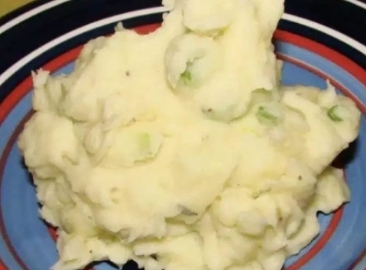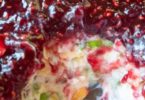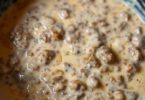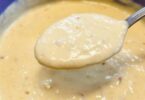Unique Title:
“Why Boiling Potatoes in Water Ruins Your Mash: The Secret to Next-Level Creamy Potatoes”
Introduction
We’ve been taught from day one to boil potatoes in water for mashed potatoes. It’s the standard method passed down for generations. But here’s the truth: boiling potatoes in plain water can actually drain flavor and ruin texture — making your mashed potatoes bland, watery, and gluey.
Want restaurant-quality mashed potatoes that are rich, creamy, and flavorful? It’s time to rethink your method. This article explains why boiling in water is not ideal, and what you should do instead to take your mash from average to extraordinary.
Ingredients (for the better method):
2 pounds of Yukon Gold or Russet potatoes (peeled and cut into chunks)
2 cups low-sodium vegetable or chicken broth (or milk for ultra-creaminess)
4 tablespoons unsalted butter
1/2 cup cream, milk, or sour cream
Salt, to taste
Freshly ground black pepper, to taste
Optional: garlic cloves or herbs for infusion
Preparation (The Better Way):
Skip the plain water. Instead, simmer your potatoes in broth or milk. This adds flavor directly to the potatoes while cooking.
Place the potatoes in a pot, cover with broth (or a mix of broth and milk), and simmer gently — not a rapid boil — until tender (about 15–20 minutes).
Drain most (but not all) of the liquid, reserving about 1/4 cup to mash with.
Add butter, reserved liquid, and cream. Mash until smooth and creamy.
Season with salt, pepper, and any additional mix-ins like roasted garlic or chives.
Serving and Storage Tips:
Serve immediately while hot and creamy. Mashed potatoes tend to firm up as they cool.
To keep warm before serving, place the bowl over a pot of simmering water (double boiler style).
Store leftovers in an airtight container for up to 3 days in the refrigerator.
Reheat gently with a splash of cream or milk to loosen the texture.
Variants:
Herb-Infused Broth: Simmer potatoes in broth with thyme, rosemary, or bay leaves for a subtle herbal flavor.
Garlic Lover’s Mash: Add a few peeled garlic cloves to the pot for garlicky goodness.
Cheesy Upgrade: Stir in grated parmesan, cheddar, or cream cheese for extra indulgence.
Butter Bomb: Brown the butter before adding for a nutty, rich taste.
Plant-Based Version: Use unsweetened oat or almond milk and vegan butter for a dairy-free alternative.
FAQ:
Q1: Why is boiling in water bad for mashed potatoes?
A: Water draws out starch and natural potato flavor, leaving them bland and sometimes gluey in texture if overmixed. Using broth or milk adds flavor and better consistency.
Q2: What’s the best potato for mashing?
A: Yukon Gold for creaminess and slight butteriness, or Russet for fluffiness.
Q3: Can I still use water if I don’t have broth or milk?
A: You can, but salt the water well and consider adding flavor with butter, garlic, or herbs during the mashing process.
Q4: What causes gluey mashed potatoes?
A: Overworking the potatoes, especially with an electric mixer or food processor. Mash gently and only until smooth.
Q5: Can I make this ahead of time?
A: Yes, but reheat slowly and stir in a bit of milk or cream to restore creaminess.
Conclusion
Boiling potatoes in plain water might be tradition — but it’s not the tastiest choice. If you want creamy, rich, and flavorful mashed potatoes that impress every time, cook them in broth or milk instead. Small change, huge results.







